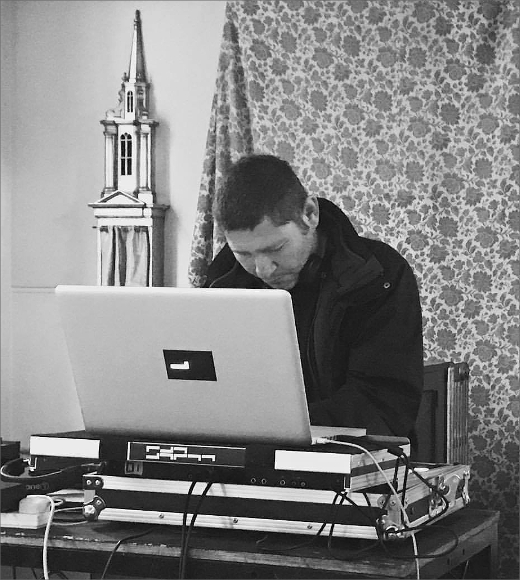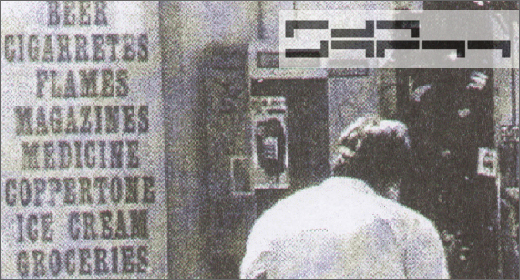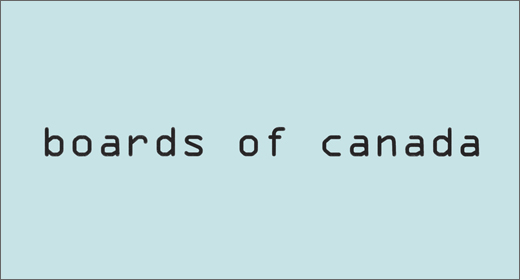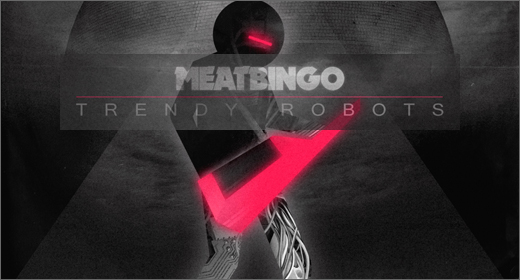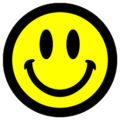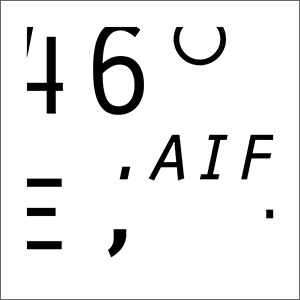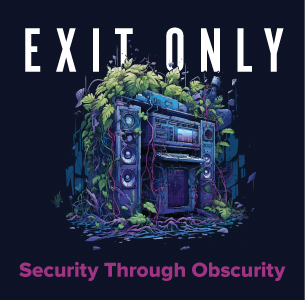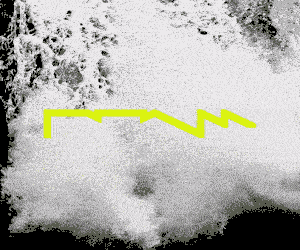“22rpm Festival returned to London Saturday October 7th, 2017 to support once more the other side of electronic music, pulling away from the deafening commercialization of what used to be a liberating diverse genre. Another mind-blowing line-up, visuals and very special treats you’ve come to expect from the rpm events.” Interview with Andy Maddocks of Skam Records conducted by Christopher Mathieu (aka Topher).
You started Skam in 1991 shortly after Warp and around the same time as Rephlex. What was going on at that time to have so many abstract electronic artists coming out of the woodwork?
There was just a lot of people around me at the time that were making that kind of music really, and there was no outlet, apart from Warp and the Artificial Intelligence compilation, the Rephlex crowd, things like that, there wasn’t much. It was a natural progression, purely natural progression of just people around us, our influences from the rave culture and things like that and getting slightly older and coming out of there, it really was the natural progression, we didn’t really plan anything, it just purely happened.
How did you come up with the name Skam? Does it stand for anything?
Ha, that’s a secret! (snickers) Nah… “Some Knowledge About Music.”
What is the difference between Skam and Skam Records? Discogs lists them as two different things.
In my mind, it’s the same thing, so I don’t know. Somebody else started the pages.
The first release was Lego Feet but they were already signed on Warp as Autechre. What made them want to be a part of Skam as well?
We were friends. We were friends before. Before Autechre signed to Warp, before I started Skam. So we’re just good friends really, and they were making music. For Lego Feet, we never really put it out, it was just given to friends, we didn’t really know anything, I didn’t really start Skam until 1994, then it officially started. We used to drive around to record shops trying to take—you know, and they’d get sale or return: you drop five records off, they give you a slip, then you go back in two months and you get four records back or something, so it was a really tedious process, but I loved it because you’re just going to see people and people’s reaction to the music and stuff.
Are you the only person to select the artists to be released on Skam and how do you select them?
Yes, but I do play things to people and I really respect their reaction, response, advice, so it’s a democratic process really, but I do select, yes, I do select the music.
Since ’94 you have maintained a rather even flow of releases. What’s the day-to-day workload running Skam? Do you listen to many demos?
Yes. Nowadays, it’s not as much fun listening to demos because artists nowadays want instant gratification so they upload something to Bandcamp, Soundcloud, something like that, so it just ends up being a big mass of people doing stuff and it’s difficult to try and pick things out. So I do miss the days of actually receiving demos through the PO Box. I really appreciated that. And this instant gratification thing is spoiling music in general I think. Artists have no patience. So there’s no time spent on developing sound or someone’s individual aspects or views on music, you know, and bringing something individual to it. It’s very difficult now to do that. So if you find somebody doing that, it’s really special, and that’s really difficult. It doesn’t come around very often.
The success of Boards Of Canada was exceptional and rather sudden. How did that change things for Skam?
Yes. It just went skywards. Yeah, very steady, but it was just more and more and more. So I did try to distract a little from that and move away from it a little because I didn’t want to become… All we’d get was Boards of Canada imitation demos or Autechre imitation demos. So we always tried to do something a little controversial just to keep us. That’s why we’re still here! Because if we had just gone “Yes! We’re Boards Of Canada’s label” and gone into loads and loads of Boards of Canada sounds, we’d be dead now. It would be the end of Skam Records. Same with the Autechre sound. We always try to bring other things in and looking for new styles, keep moving, you know… I’m not really a… I’m more a music man than a business man, so the money doesn’t interest me so much, you know.
The label “IDM” was given as a genre to the music featured on Skam. How do you deal with that name? Do you find it irritating or do you accept it?
Ehh—I just ignore it. Because, over the years, we’ve had so many different names, you know, different genres. In my mind, it’s just “electronic music,” or “instrumental electronic music.”
Gescom is a project that has a different line-up pretty much every time. Could you tell us how that line-up has evolved over the years?
Again, it’s a natural progression. There’s no planning.
But I mean, did it use to be 2 or 3 people and then it expanded?
No, it was a case of three people sat in a studio: “Ok, let’s do something, just make some music.”
No given strategy?
No, there’s no “Right, we’re gonna meet on this day and…” no, it’s very natural.
How many people does that involve?
Erm, it varies. It varies.
Yeah, but 10, 20, or more?
In general? Yeah, it could be, could be. On a Monday 8, and on a Tuesday, it could be 20.
Last question: What’s new for Skam? Do you have any special news, signings or upcoming releases?
Yeah, we got some new things coming. I don’t really like to talk about what’s around the corner really, to be honest. But yeah, there’s a lot of interesting things happening. Yeah, we just need to put more releases out, really, because our release schedule at the minute is too slow. We need to put more things out.
Visit the Bleep.com Skam store.









